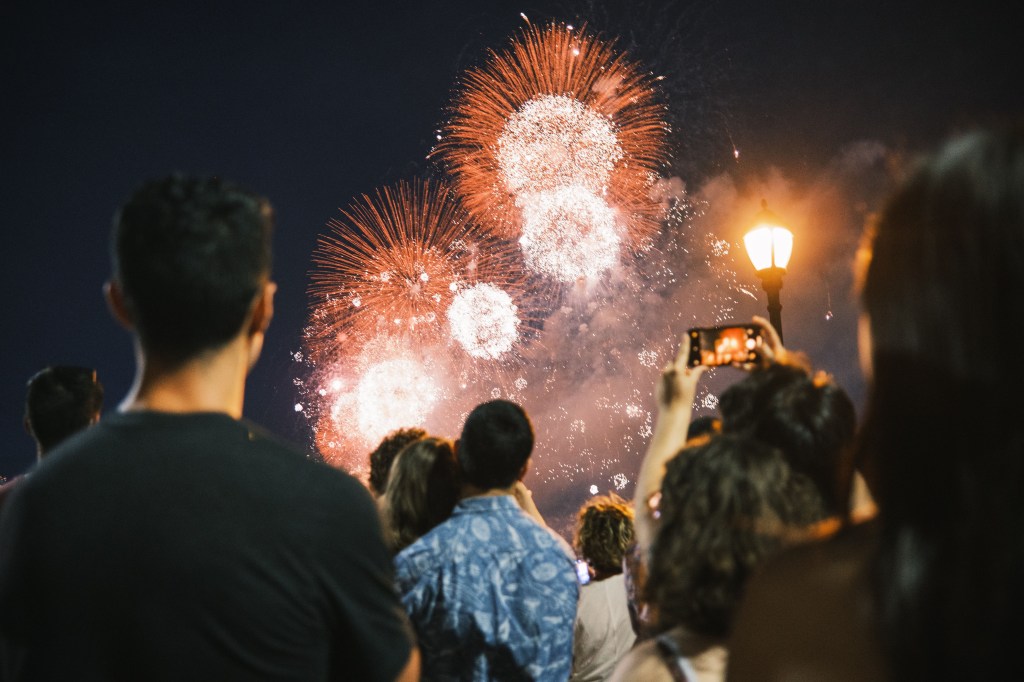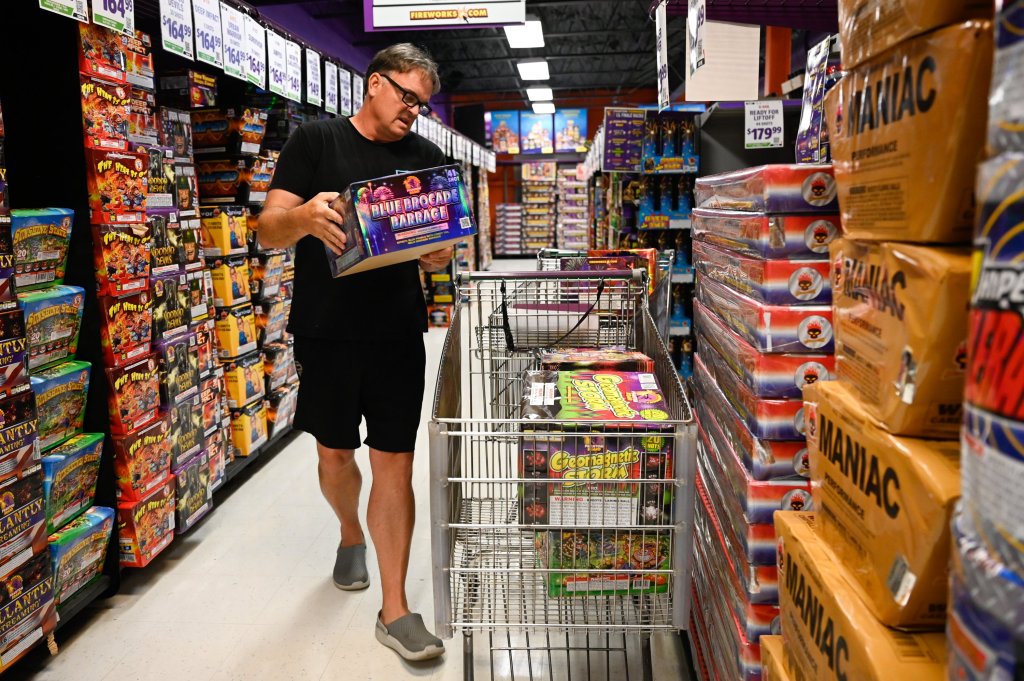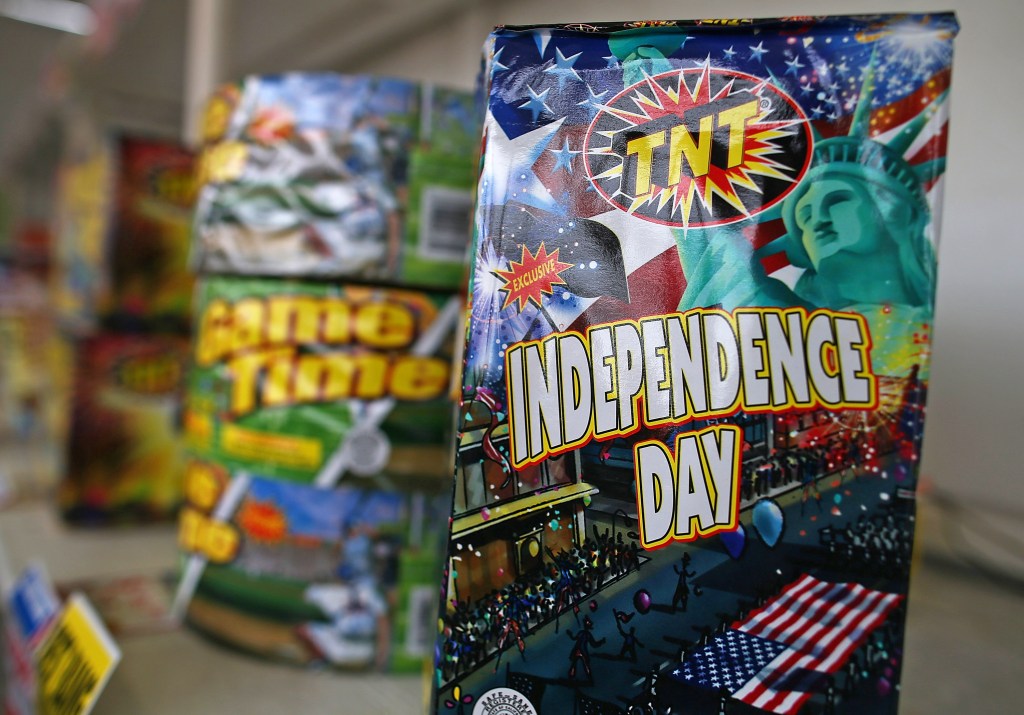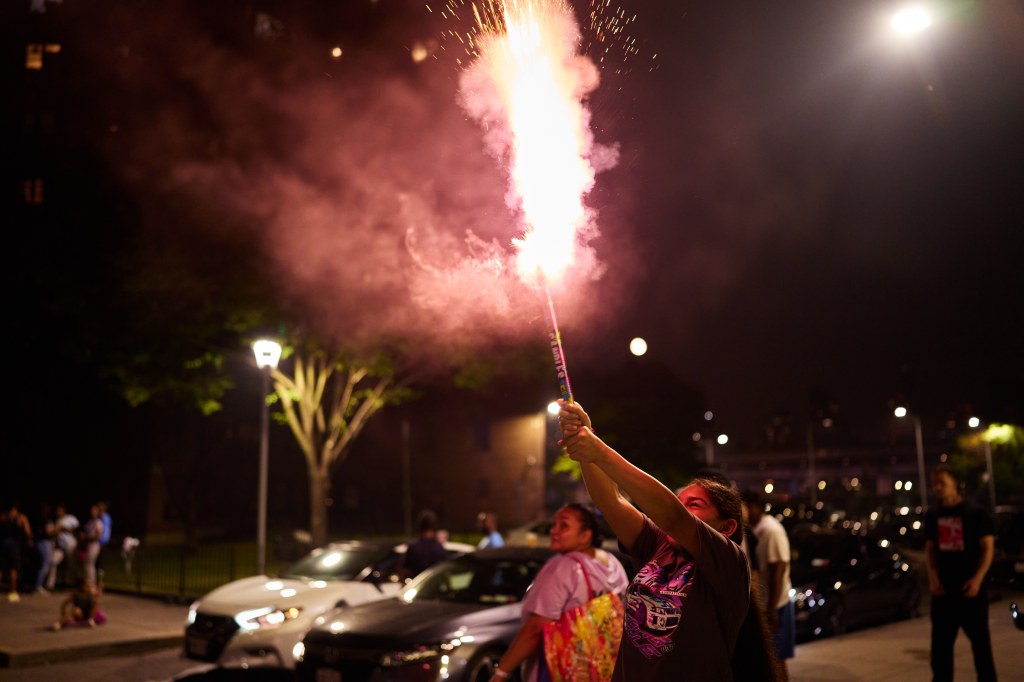President Trump’s punishing tariffs on Chinese imports might mean dimmer night skies during America’s favorite summertime holiday, as experts warn that this year’s Independence Day fireworks celebrations might be significantly scaled back — if they happen at all.
Trump’s escalating trade war with China — where 99% of fireworks are manufactured — has the pyrotechnics industry in full panic mode as duties have climbed to 145% on certain imports from the country, including fireworks.
The astronomical tariffs on China are threatening to blow up July 4th displays from sea to shining sea — as well as the small, family-run businesses that keep them stocked with the dazzling skyrockets.

“The tariffs are worse than COVID,” Julie Heckman, executive director of the American Pyrotechnics Association (APA), which represents companies in every link of the fireworks supply chain, told The Post.
“The industry was completely shut down in 2020 — fireworks shows nationwide were canceled. All of those small family businesses, many of which are multi-generational, 100-plus-year-old businesses barely survived,” she said, adding that the Trump tariffs are “absolutely” a tax on small business.
Trump exempted the pyrotechnics in 2019 during his first term when he first implemented tariffs against China, but this time around, there’s been no such reprieve.
“[Fireworks businesses] are really beginning to get back on their feet and thrive, and now being hit with a tariff has got everybody in a tailspin. How do you absorb 145%? Especially when this is the peak time for all of our products to come in from China,” she said, noting that fireworks exports reach their zenith just after Chinese New Year in February.

“All of our products are being hit at the absolute worst possible time.”
Heckman said there are approximately 17,000 Fourth of July celebrations nationwide each year, from small towns to major metropolises, some of which depend on the increased revenue the festivities bring in, and that fireworks shows are a major part of the draw for the events.
She said that rather than absorbing the costs or passing the increased prices along to the customer, she expects to see a rash of consolidation or buyouts in the industry.

As for tariffs bringing fireworks manufacturing stateside, Heckman said it’s never going to happen.
“Fireworks will not be manufactured in the US — it’s just impossible. We don’t have the raw materials, the gunpowder, and all of the necessary chemicals. Even if someone wanted to start, you’d have to import all of the chemicals,” she pointed out.
She said that during the 1940s-1960s, professional Italian fireworks makers immigrated to the US and settled in New Castle, Pennsylvania, which became the fireworks capital of the US until regulatory reforms set in motion by the Occupational Safety and Health Administration (OSHA) and the Environmental Protection Agency (EPA) caused the industry to fizzle out faster than a damp bottle rocket.
Earlier this month, the APA sent a letter to Trump asking him to lift the tariffs on fireworks for the sake of the industry.
“In 2019, your administration wisely recognized the unique nature of the fireworks industry andexempted it from similar tariffs. We urge you to take the same wise action now to protect Americanjobs, small businesses, and the patriotic celebrations that define our great nation and bring us together,” the association wrote.
The letter notes that fireworks sales contribute a whopping $2 billion annually to the US economy and that 70% of consumer fireworks are sold to support nonprofit organizations — many of which are critical to supporting their operating budgets.
“We respectfully urge you to act now to lift the tariffs and keep fireworks an affordable and accessibletradition for all Americans,” it concludes.

Asked what impacts she expects the tariffs to have on this year’s July 4th displays, Heckman said to expect less rockets’ red glare and fewer bombs bursting in the air.
“I think a lot of displays are going to be smaller. Especially for independent shows,” she lamented, underscoring the importance of the holiday as a national unifier.
“It’s the one time of year everyone gathers as a community regardless of race, creed, religion — everyone comes together to celebrate our pride and patriotism. Everyone has a favorite memory of July 4th, whether it’s gathering in the community or waving a sparkler on their street.”
The post Perilous fight: Fireworks industry urges Trump to consider tariff exemption as it warns July 4th celebrations could be imperiled nationwide appeared first on New York Post.




